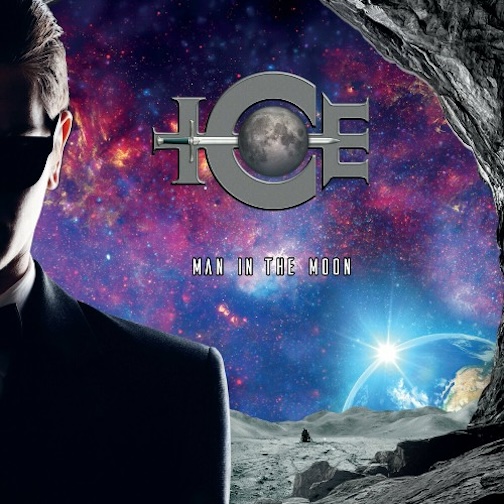 Since the release of their debut “The Saga” in 2005, and that catchy track “Not Only Love”, this Dutch band has been stuck in a 19-year-old iceberg, which finally melted over that time span, enough to provide a follow -up. Exact same crew except for a new standout bass player in René Sterk, the upgrade is immediately obvious from the first few seconds. While lead vocalist Hein van den Broek, guitarist Chris van Hoogdalem and drum master Rob Boshuijzen all carved out a career with fellow countryman Maryson in the late 90s, it is really the impeccable work of keyboardist Ardie Westdijk that has caught my immediate attention, elevating his craft to much higher levels than on the debut, making this new effort a huge surprise for 2024 and will be in the Prog Rogue’s top 25 for sure.
Since the release of their debut “The Saga” in 2005, and that catchy track “Not Only Love”, this Dutch band has been stuck in a 19-year-old iceberg, which finally melted over that time span, enough to provide a follow -up. Exact same crew except for a new standout bass player in René Sterk, the upgrade is immediately obvious from the first few seconds. While lead vocalist Hein van den Broek, guitarist Chris van Hoogdalem and drum master Rob Boshuijzen all carved out a career with fellow countryman Maryson in the late 90s, it is really the impeccable work of keyboardist Ardie Westdijk that has caught my immediate attention, elevating his craft to much higher levels than on the debut, making this new effort a huge surprise for 2024 and will be in the Prog Rogue’s top 25 for sure.
The title track requires no private eye to figure out the subject matter, as it seeks to relive those heady moments in 1969 when the entire globe was in total union, from the jungles of Africa, the endless steppes of East Asia to the towering heights of the Andes, and everywhere in between. Fluffed up with a slew of memorable JFK snippets, the blast-off could not have been more glorious, what with Ardie’s sumptuous keyboard sonorities and the propellant fuelled bass and drum thunder. Once safely beyond the earth atmosphere, the mood sweeps across the universe, heading for that constant companion in the sky, to boldly go where no one has gone before. The guitar streak is joyfully bombastic, exhilaration in the adventure of a lifetime.
The bass guitar takes up the leadership on “The Voice of Black Mountain”, carving a solid orbit upon an anthemic melody, evolving into a symphonic neo-prog arrangement with dense choir mellotron as the background. Nothing experimental, just perfectly executed and ear-friendly story telling, with enough minor variations to keep the finnicky at bay. The serenity expressed in the second section extols the virtues of contemplation and adventure.
The gloomy tone “Inside the Bulb” chooses a more articulate method, whereby van den Broek shows off his considerable vocal ability, modulating his control in convincing fashion, hitting higher and wider notes with apparent ease, as his ‘consciousness weighs’ in rarefied zero-gravity air. Nice claustrophobic pulse, inducing a hypnotic sense of grandeur. Definitely a highlight track, much worthy of prog radio play.
Reverting to a simpler delivery, “The Dreams That Never Were” is suitably intriguing lyrically, contrasting with the rudimentary song format, and gracefully adorned with massive backing vocal choir, a slight IQ feel, which is never a bad thing. The soaring guitar reprise of the main melody with the added choir effect is highly effective, raising the level with impunity.
The lengthiest track is up next, with its long title “At the Break of Dawn & Across the Frozen Lake” and this is where the lads get to really stretch out their talents. Nearly 9 minutes of pungent, attractive and hugely harmonious sonic weavings, with the various keys up-front and center, the ideal platform for a genuine vocal performance, as Rein offers a minor nasal tinge to his vocals that can only please the fussy ear. He maintains and then raises the power of his modulation, as the denouement will whisk one across the icy pond without a slip or tumble.
The magnificent “Cambridge” is just a few seconds shorter and keeps the focus on the titanic melodies this band has evidently mastered, spinning a delicate tale, airy and breezy with an undisputed sense of delight. In fact, it sounds like a very British anthem, in that pastoral bucolic style that made the islanders famous. Chris van Hoogdalem unleashes a series of sunny solos that only serve to heighten the passion in the singer’s approach, becoming louder and more convincing as the track weaves through the meandering canals, searching for home.
The bustling bass unites with the wood-chopping guitar/drum duo on “Returning to the Day”, reigniting the earlier sizzle with powerful slashes and voluminous choruses. A pertinent fretboard display emits a strong live feel, with just the right amount of dynamics. “Waves of the Wind” is more of a melancholic ballad, rightly moody and sinister, like a frail ship amid the collapsing currents, battered by violent gales and obedient to the whim of nature’s fury. The woeful pleas go noticed and require fortitude to prevail against the storm. The heroic disposition of “The Wizard” fails not to impress, a generous tale with jangling guitars, trembling rhythmic sorcery, and a resonating lead vocal. The electric guitar never overstays its welcome in the spotlight, preferring to return at an opportune time, letting the synth do some damage as well.
Always need to keep best for last, “Lost in the Blue” is a worthy successor to “Not In Love”, a sparkling finale with a colossal melody, chorus and a lead vocal that scours not only the skies above, but the universe beyond. Six minutes of bliss, beauty and bravura that seals this album with high marks for both technical merit and artistic impression. What better than a sensual saxophone solo to kill off this album with endless applause. Ice need not to consider another 19-year hiatus, melting away another fine chapter in the prog pantheon, as that would be most unfair to us all.
4.5 Buzz Armstrongs








